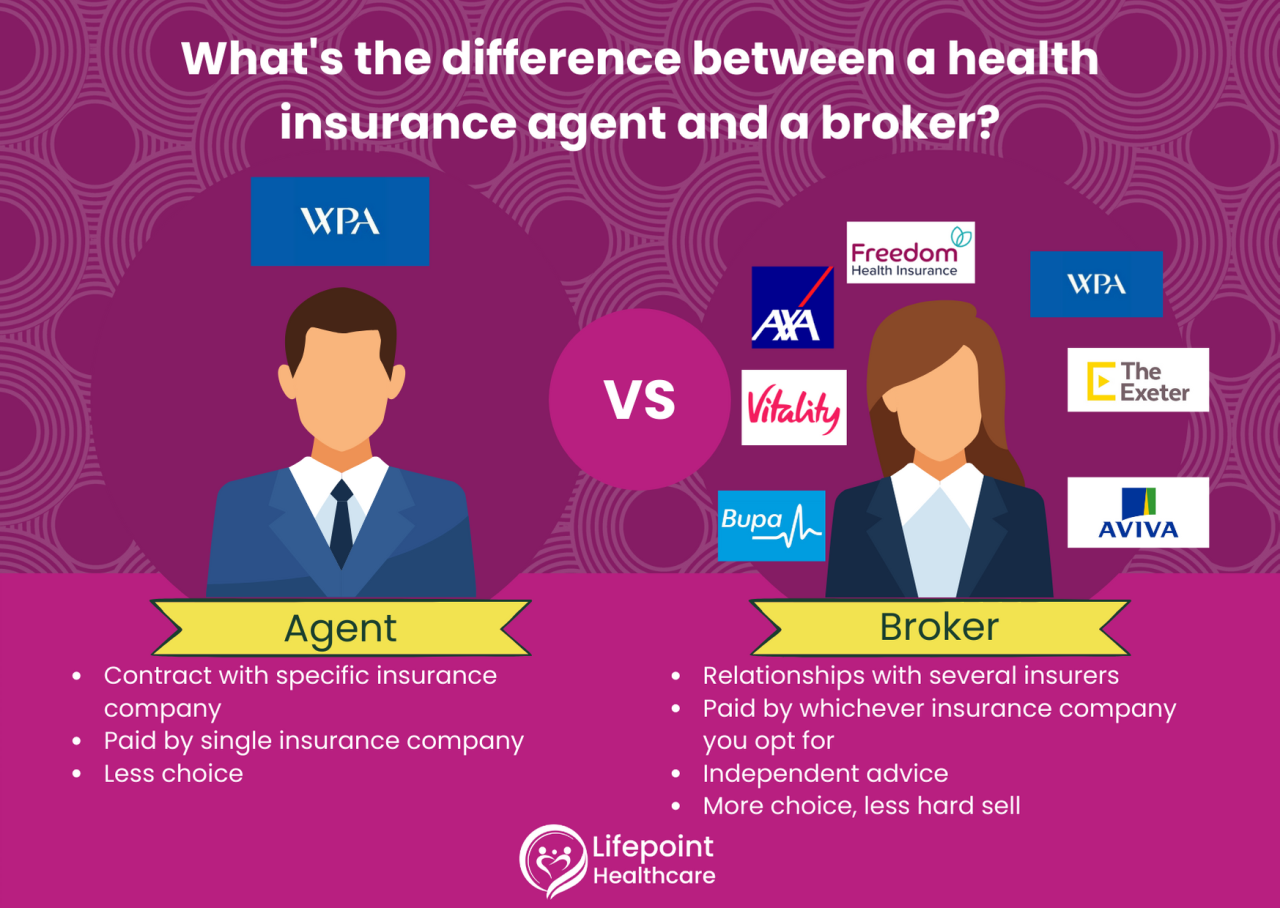Health benefit brokers act as intermediaries between individuals or businesses and insurance companies, helping them navigate the complex world of healthcare coverage. They provide expert advice, tailored solutions, and personalized support to ensure clients find the most suitable and cost-effective health insurance plans.
These brokers offer a comprehensive range of services, including plan selection, enrollment, and administration. They are well-versed in various types of health benefits, such as medical, dental, vision, and life insurance, and can help clients understand the nuances of each plan.
What are Health Benefit Brokers?
Navigating the complex world of healthcare benefits can be a daunting task for individuals and businesses alike. This is where health benefit brokers come in, acting as trusted advisors and intermediaries between individuals or employers and insurance companies. They play a crucial role in helping individuals and businesses find the right health insurance plans that meet their needs and budgets.
Services Provided by Health Benefit Brokers
Health benefit brokers offer a wide range of services to help individuals and businesses navigate the healthcare benefits landscape. These services include:
- Plan Selection: Brokers have extensive knowledge of various health insurance plans offered by different insurance carriers. They can help individuals and businesses compare plans based on factors such as coverage, premiums, deductibles, and copayments, ensuring they choose a plan that aligns with their specific needs and budget.
- Enrollment: Brokers assist with the enrollment process, ensuring that individuals and businesses complete all necessary paperwork and meet enrollment deadlines. They can also guide clients through the complexities of navigating different enrollment platforms and websites.
- Administration: Health benefit brokers can manage the administrative aspects of health insurance plans, including claims processing, billing, and customer service. This frees up individuals and businesses to focus on other priorities.
Benefits of Using a Health Benefit Broker

Navigating the complex world of health insurance can be daunting, whether you’re an individual seeking coverage or a business owner looking to provide benefits for your employees. This is where health benefit brokers come in, offering valuable expertise and support to simplify the process and ensure you get the best possible coverage.
Benefits for Individuals
Brokers act as your advocate in the health insurance market, helping you find the most suitable and affordable plan that meets your specific needs. They provide personalized guidance, explaining different plan options, coverage details, and cost breakdowns. This empowers you to make informed decisions about your health insurance, ensuring you choose a plan that aligns with your budget and health requirements.
- Access to a Wider Range of Plans: Brokers have access to a vast network of insurance carriers, giving you a broader selection of plans to choose from, including options that might not be readily available through direct carrier websites.
- Personalized Guidance: Brokers take the time to understand your individual needs and health situation, providing tailored recommendations and ensuring you choose a plan that best suits your circumstances.
- Cost Savings: Brokers can help you find plans that offer the best value for your money, considering factors like premiums, deductibles, and co-pays. They can also negotiate lower rates on your behalf, potentially saving you significant costs over time.
- Streamlined Enrollment Process: Brokers handle the paperwork and administrative aspects of enrollment, simplifying the process and ensuring you have the necessary documentation for a smooth transition.
Benefits for Businesses
For businesses, health benefit brokers play a crucial role in managing employee benefits, ensuring cost-effective coverage while maximizing employee satisfaction. Brokers provide a range of services that can significantly benefit your business, including:
- Cost Savings: Brokers leverage their market knowledge and negotiating power to secure competitive group rates from insurance carriers, potentially saving your business significant costs on health insurance premiums.
- Improved Employee Benefits: Brokers help you design a comprehensive benefits package that meets the needs of your workforce, attracting and retaining top talent. They can help you identify the most suitable plan options, including options like health savings accounts (HSAs) or flexible spending accounts (FSAs), that can enhance employee benefits and satisfaction.
- Compliance Support: Navigating the ever-changing landscape of health insurance regulations can be complex. Brokers stay up-to-date on legal requirements and ensure your business remains compliant with all applicable laws and regulations, minimizing the risk of penalties and legal issues.
- Increased Efficiency: Brokers handle the administrative burden of managing your health insurance program, freeing up your time and resources to focus on other critical business operations. They manage enrollment, plan changes, claims processing, and other administrative tasks, ensuring a seamless experience for your employees.
Cost-Effectiveness
The cost-effectiveness of using a health benefit broker is a key factor for many individuals and businesses. While brokers do charge fees, their expertise and services can often lead to significant cost savings in the long run. By leveraging their negotiating power and market knowledge, brokers can secure better rates, identify cost-saving plan options, and streamline administrative processes, resulting in a net benefit for their clients.
“The fees associated with using a health benefit broker are often offset by the cost savings they can help you achieve through better plan selection, negotiation, and administrative efficiency.”
How Health Benefit Brokers Work
Health benefit brokers act as intermediaries between businesses and insurance carriers, simplifying the process of finding and securing the right health insurance plan. They leverage their expertise and market knowledge to guide businesses through every step, from initial assessment to plan implementation.
The Process of Working with a Health Benefit Broker, Health benefit brokers
The process of working with a health benefit broker typically involves the following steps:
- Initial Consultation: The process begins with an initial consultation where the broker meets with the client to understand their specific needs and goals. This includes gathering information about the company’s size, employee demographics, budget, and desired coverage levels.
- Needs Assessment: Brokers use this information to conduct a thorough needs assessment, analyzing the client’s current health insurance plan, employee benefits package, and overall risk profile. They identify areas for improvement and potential cost savings.
- Plan Recommendation: Based on the needs assessment, the broker develops a customized plan recommendation, presenting a selection of health insurance options from various carriers. These recommendations are tailored to the client’s specific requirements, budget, and coverage preferences.
- Negotiation: Brokers leverage their relationships with insurance carriers to negotiate favorable rates and terms for their clients. They utilize their market knowledge and bargaining power to secure competitive pricing and comprehensive coverage.
- Plan Implementation: Once the client selects a plan, the broker assists with the implementation process. This includes enrolling employees, managing paperwork, and ensuring a smooth transition to the new plan.
- Ongoing Support: Brokers provide ongoing support to their clients throughout the year. They answer questions, resolve issues, and help with plan administration. They also monitor market changes and advise clients on potential adjustments to their plans.
Choosing the Right Health Benefit Broker

Finding the right health benefit broker can be a crucial step in securing the best coverage for your employees and your business. It’s important to choose a broker who understands your needs, offers competitive solutions, and provides exceptional service.
Factors to Consider When Selecting a Health Benefit Broker
It’s important to carefully consider several factors when choosing a health benefit broker. These factors can help you narrow down your options and find a broker that aligns with your business goals.
- Experience and Expertise: A broker with a proven track record in the health insurance industry can offer valuable insights and guidance. Look for brokers with experience in your industry and a deep understanding of the complexities of health insurance plans.
- Client Base and Success Stories: Consider the broker’s client base and their success stories. Look for brokers who have a strong reputation for providing excellent service and delivering positive outcomes for their clients. Ask for references and testimonials from previous clients.
- Communication and Transparency: Clear and open communication is essential in any business relationship. Choose a broker who is transparent about their fees, processes, and the options they are presenting. Ask about their communication style and how often they will provide updates.
- Technology and Resources: A modern broker will leverage technology to streamline processes, improve efficiency, and provide access to valuable resources. Look for brokers who offer online platforms, mobile apps, and other tools that make it easy to manage your health benefits.
- Network and Partnerships: A broker with a strong network of insurance carriers and other service providers can offer more options and potentially better rates. Inquire about their relationships with different carriers and their ability to negotiate competitive plans.
- Compliance and Regulations: The healthcare industry is subject to complex regulations. Choose a broker who is well-versed in compliance requirements and can ensure that your health benefits program meets all legal standards.
The Importance of Experience, Expertise, and Reputation
Choosing a health benefit broker with experience, expertise, and a strong reputation is crucial.
“An experienced broker can navigate the complex world of health insurance, understand your specific needs, and negotiate the best possible rates for your business.”
A broker with deep expertise in the health insurance industry can help you understand the various plan options, navigate the complexities of coverage, and make informed decisions. A broker’s reputation can be a good indicator of their reliability, professionalism, and ability to deliver on their promises.
Transparency and Clear Communication
Transparency and clear communication are essential when working with a health benefit broker. You should be able to understand the broker’s fees, processes, and the options they are presenting. Ask for clear explanations of the terms and conditions of the plans, and don’t hesitate to ask questions until you fully understand the information.
“A good broker will be transparent about their fees, processes, and the options they are presenting. They will also be open to answering your questions and addressing your concerns.”
Array
The health benefit brokerage industry is undergoing a period of significant transformation, driven by evolving healthcare trends, technological advancements, and changing consumer preferences. Brokers are adapting to these changes to remain relevant and competitive, embracing new strategies and technologies to deliver innovative solutions to their clients.
The Impact of Technology and Digital Platforms
Technology is playing a pivotal role in shaping the future of health benefit brokers. Digital platforms and online tools are transforming how brokers operate, interact with clients, and manage data.
- Enhanced Client Engagement: Brokers are leveraging digital platforms to provide clients with personalized online portals, allowing them to access their benefits information, make changes, and submit claims easily. This improves client satisfaction and fosters stronger relationships.
- Data Analytics and Insights: Digital platforms enable brokers to collect and analyze vast amounts of data, providing insights into client needs, market trends, and plan performance. This data-driven approach helps brokers make informed recommendations and optimize benefit plans.
- Automated Processes: Brokers are using automation tools to streamline administrative tasks, such as enrollment, billing, and claims processing, freeing up time for more strategic activities like client consulting and relationship management.
In an era where healthcare costs continue to rise, health benefit brokers play a crucial role in empowering individuals and businesses to make informed decisions about their health insurance. By leveraging their expertise and leveraging the latest technology, brokers provide invaluable guidance and support, helping clients achieve peace of mind and financial security.
Common Queries
How do health benefit brokers get paid?
Health benefit brokers typically receive commissions from insurance companies for placing clients in plans. These commissions are usually factored into the insurance premiums, so clients do not typically pay additional fees for the broker’s services.
Are health benefit brokers required by law?
No, health benefit brokers are not required by law. However, they can be incredibly valuable resources for individuals and businesses looking for the best health insurance options.
What are the qualifications of a health benefit broker?
While specific requirements vary by state, most health benefit brokers are licensed and certified professionals with expertise in the insurance industry. They often hold designations such as Certified Insurance Counselor (CIC) or Registered Health Underwriter (RHU).
How can I find a reputable health benefit broker?
You can find reputable health benefit brokers through referrals from friends, family, or colleagues. You can also search online directories, such as the National Association of Health Underwriters (NAHU) website.